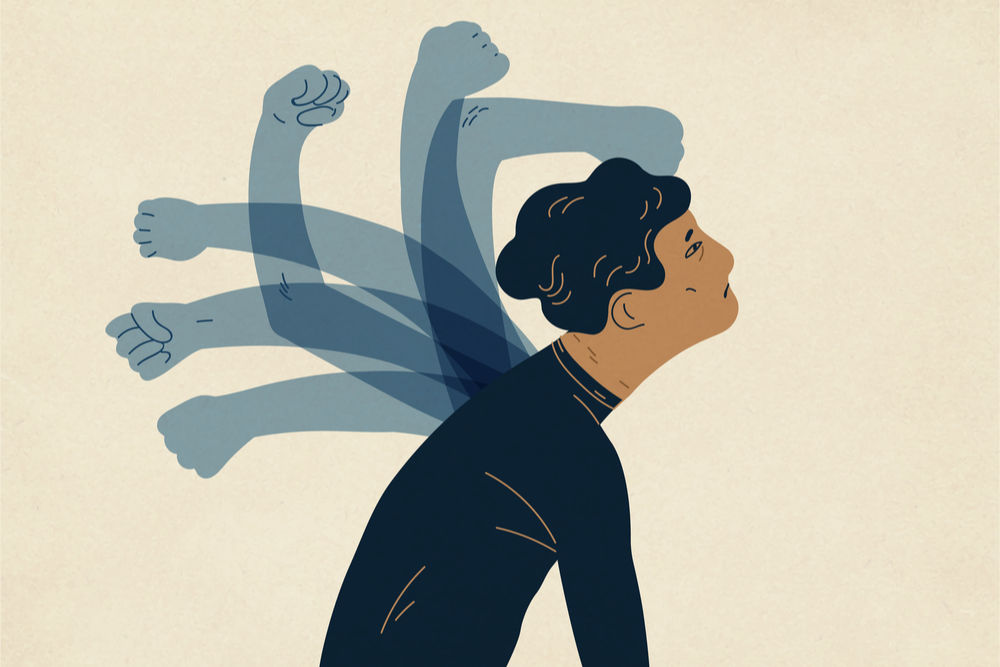Guilt in sobriety threatens to derail recovery when mishandled. Often, it’s shame, guilt’s evil twin, which takes recovering folks down. And guilt can morph into shame if you aren’t careful.
According to Brené Brown, a renowned shame and vulnerability researcher, the difference between guilt and shame is simple in theory.
“Shame is a focus on self, guilt is a focus on behavior,” Brown says in her TED Talk, “Listening to Shame.”
“Shame is ‘I am bad,’” Brown continues, “and guilt is ‘I did something bad.’”
However, when handled with caution and the right support, guilt can motivate you to make important changes in your life.
The Ranch Pennsylvania is here to help you successfully navigate guilt and shame in addiction recovery.
Jack’s Let’s Go of Guilt and Shame in Addiction Recovery
Two years into recovery, Jack’s amends list was put through the washing machine. The list included all the individuals Jack had harmed when he was still using painkillers.
Today, he laughs as he recalls how he held the shriveled list in his hands and thought, “Welp, guess I’m off the hook for those.” Accepting one’s past actions plays an intimidating role in the early recovery process.
While it was tempting to consider his amends a “wash,” Jack had a therapist and sponsor in Alcoholics Anonymous (A.A.) encouraging him to rewrite the list.
Why is Accountability Important?
When entering recovery for a substance use disorder, it’s been said that people “feel more.” A typical newcomer will feel more anger, feel more joy, feel more depression, more resentment, more happiness and more guilt. A barrage of emotion comes flooding to the surface after being suppressed over years of chemical dependence and numbing. This flood of feelings often arrives alongside clarity surrounding old patterns of behavior.
Guilt and shame, if not handled, take hold during these new moments in recovery. A newcomer may feel smothered by self-hatred when confronting past using behaviors. If the self-hatred gains strength, it’s easy to feel drawn to the familiar and comfortable numbing with substances, sex and other distractions.
Add a Cup of Support
Thankfully, there is support. When a newly sober person is surrounded by those who have experience in recovery, the door opens to understanding. The newcomer will be reminded to confront past indiscretions with gentle self-care. Facing the guilt involved with past addiction-driven behavior is painful, but it’s a lot less painful when a group of supportive and understanding fellows is right there with you.
Those new in recovery should not forget who was hurt most by their actions, themselves. Living in shame does no good for anyone. Self-observation is the goal, not self-flagellation. Guilt and shame can hang over a person like a personal thunderstorm.
Luckily, there are actions to relieve those new to recovery. Finding a therapist specializing in addiction recovery allows a newcomer to confront past behavior with gentle understanding. No one sets out to hurt the people they love. Joining a support group like A.A. also sets the stage for success when facing the heavy weight of guilt.
Laughter and Support Motivate Change
Reaching out for support may seem overwhelming and scary. Gratefully, it’s also proven to be a process filled with hilarity and deep belly-laughs. No one sticks to recovery because it’s a somber and cheerless experience. People stick to recovery because it’s fun to be with people who understand, and it makes life better.
Robbie, who has 32 years in sober recovery, was once traveling across the U.S. with a group of her sober pals. They stopped at a roadside diner and stayed sitting there deep into the night. After a particularly boisterous round of laughter, they were approached by a local state trooper.
The trooper had been eating dinner and suspected this rowdy group should not be driving. “Have you been drinking?” Asked the trooper, “No sir,” answered Robbie with a smile, “not for the last 32 years.” The group erupted into laughter as a smile spread across the face of the serious lawman.
There is fun to be had while sober when you are surrounded by those who “get it.” Gentle understanding, combined with the shared experience of others, helps affirm that a person who does something bad is not a bad person.
Humans are too complex to categorize with such black-and-white thinking. Therapy and those who relate make for strong shoulders to lean on when confronting guilt. The Ranch Pennsylvania offers the foundation for strong connections and gentle guidance in early recovery. Call today to bring more joy and laughter to your life at 717-969-9126.
By Heather Berry
Contributing Writer with Promises Behavioral Health

